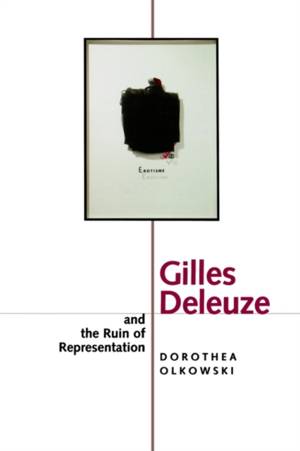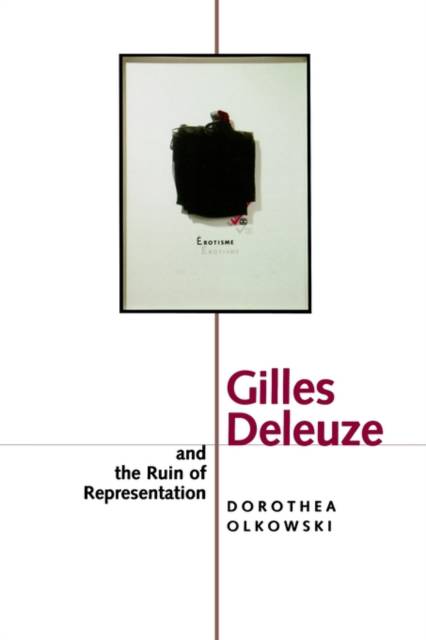
- Afhalen na 1 uur in een winkel met voorraad
- Gratis thuislevering in België vanaf € 30
- Ruim aanbod met 7 miljoen producten
- Afhalen na 1 uur in een winkel met voorraad
- Gratis thuislevering in België vanaf € 30
- Ruim aanbod met 7 miljoen producten
Zoeken
€ 57,95
+ 115 punten
Omschrijving
Dorothea Olkowski's exploration of the philosophy of Gilles Deleuze clarifies the gifted French thinker's writings for specialists and nonspecialists alike. Deleuze, she says, accomplished the "ruin of representation," the complete overthrow of hierarchic, organic thought in philosophy, politics, aesthetics, and ethics, as well as in society at large. In Deleuze's philosophy of difference, she discovers the source of a new ontology of change, which in turn opens up the creation of new modes of life and thought, not only in philosophy and feminism but wherever creation is at stake.
The work of contemporary artist Mary Kelly has been central to Olkowski's thinking. In Kelly she finds an artist at work whose creative acts are in themselves the ruin of representation as a whole, and the text is illustrated with Kelly's art. This original and provocative account of Deleuze contributes significantly to a critical feminist politics and philosophy, as well as to an understanding of feminist art.
The work of contemporary artist Mary Kelly has been central to Olkowski's thinking. In Kelly she finds an artist at work whose creative acts are in themselves the ruin of representation as a whole, and the text is illustrated with Kelly's art. This original and provocative account of Deleuze contributes significantly to a critical feminist politics and philosophy, as well as to an understanding of feminist art.
Specificaties
Betrokkenen
- Auteur(s):
- Uitgeverij:
Inhoud
- Aantal bladzijden:
- 310
- Taal:
- Engels
Eigenschappen
- Productcode (EAN):
- 9780520216938
- Verschijningsdatum:
- 28/10/1999
- Uitvoering:
- Paperback
- Formaat:
- Trade paperback (VS)
- Afmetingen:
- 153 mm x 228 mm
- Gewicht:
- 498 g

Alleen bij Standaard Boekhandel
+ 115 punten op je klantenkaart van Standaard Boekhandel
Beoordelingen
We publiceren alleen reviews die voldoen aan de voorwaarden voor reviews. Bekijk onze voorwaarden voor reviews.











